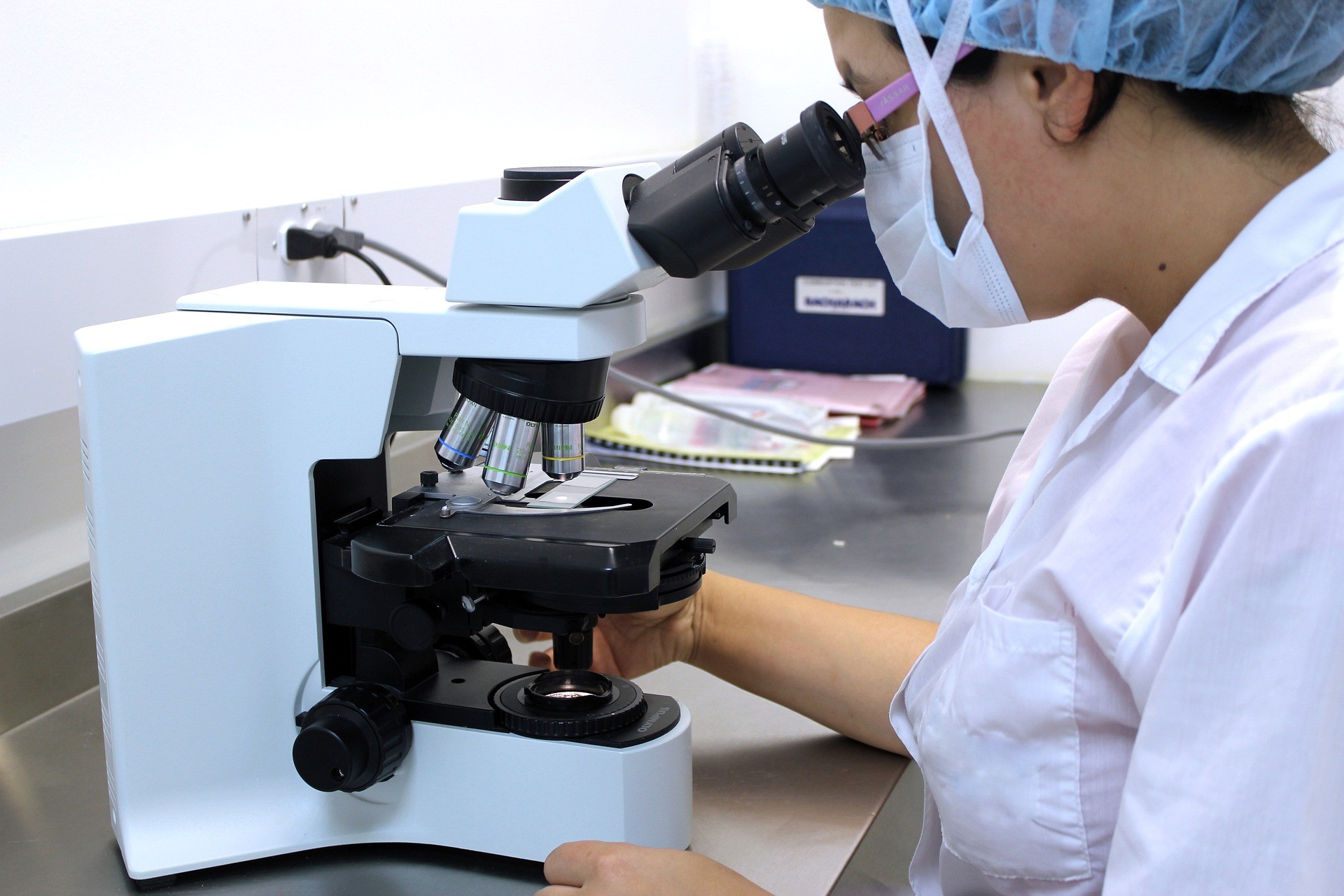Für Fachgruppen
Wissenschaft
Wissenschaft vom Mikrobiomspezialisten


Machen Bakterien dick?
Studie:
Obesity
Was waren unsere Erkenntnisse?
Das IFM konnte zeigen, dass nicht die F/BRatio entscheidend ist, sondern die Produktion von kurzkettigen Fettsäuren.
Was waren die Umsetzungen?
Aus der Adipositas Studie haben wir den CardioHeparMetabolic entwickelt.






Wie zuverlässig sind gynäkologische Diagnosen?
Studien:
Annals of Clinical Microbiology and Antimicrobials 2006
Journal of Integrative and Complementary Medicine 2022
Was waren unsere Erkenntnisse?
Therapierefraktäre Erkrankungen sind mehr als Metronidazol und Escherichia coli.
Was waren die Umsetzungen?


Immer die gleiche Mikrobiota?
Studien:
The Journal of Pediatrics 2010
Polish Journal of Microbiology 2013
Was waren unsere Erkenntnisse?
Warum F. prausnitzii ein guter Marker für Inflammation ist.
Was waren die Umsetzungen?
Studie führte zu der mukonutritiven Gruppe
Studie:
Gastroenterology Research and Practice 2009
Was waren unsere Erkenntnisse?
Schon in jungen Jahren ist die Mikrobiota unterschiedlich, aber ab 3 wird sie recht stabil.
Was waren die Umsetzungen?
Die Kinderstudie führte zu unterschiedlichen Beurteilungen bei Kindern / Erwachsenen.






Man ist, was man isst
Studien:
European Journal of Clinical Nutrition 2012
Journal of Nutritional Science 2019
Diabetes aktuell 2021
Was waren unsere Erkenntnisse?
Ernährung und Fasten haben einen Einfluss auf die Mikrobiota.
Was waren die Umsetzungen?
Auf die Mikrobiota angepasste Ernährungsund Therapieempfehlungen.


Wie wichtig sind denn nun die Antikörper?
Studien:
Nutritional Neuroscience 2017
Nutrients 2018
J. Clin. Med. 2021
Was waren unsere Erkenntnisse?
Auslassdiät kann bei Reizdarm und Depression sinnvoll sein.
Was waren die Umsetzungen?
Entwicklung des KyberAllergoPlex und Weiterentwicklung zum MadX – Verfahren






Entscheidung im Sport – die Mikrobiota entscheidet mit
Studie:
Decision 2025
Was waren unsere Erkenntnisse?
Mikrobiota hat einen Einfluss auf Risikoverhalten
Was waren die Umsetzungen?
Neubetrachtung der neuroaktiven Mikrobiota


Zahn und fein
Studien:
International Journal of Oral Implantology 2025
BMC Complementary and Alternative Medicine 2016
Was waren unsere Erkenntnisse?
Die richtige Mikrobiota ist wichtig für gesunde Zähne und Implantate.
Was waren die Umsetzungen?
Unsere ParoControl - Diagnostik von 9 mit Parodontitis assoziierten Bakterien sowie Mundgeruch- und Karieserregern.






Nur vom Kopf her?
Studien:
Parkinsonism & Related Disorders 2019
Parkinsonism & Related Disorders 2018
Was waren unsere Erkenntnisse?
Parkinson ist mehr eine Darm, als eine Gehirnerkrankung. Die Erstmanifestation beginnt größtenteils im Darm.
Was waren die Umsetzungen?
Parkinsonstudie führte zu der Neuroaktiven Funktionellen Gruppe
Publikationsliste
Das Institut für Mikroökologie ist an zahlreichen wissenschaftlichen Studien beteiligt:


Mikrobiota und neurodegenerative Erkrankungen
- Weis, S., Meisner, A., Schwiertz, A., Unger, M.M., Becker, A., Faßbender, K., Schnell, S., Schäfer, K.H. and Egert, M. (2021) Association between Parkinson's disease and the faecal eukaryotic microbiota. NPJ Parkinsons Dis. 7(1): 101. doi: 10.1038/s41531-021-00244-0.
- Becker, A., Schmartz, G.P., Gröger, L., Grammes, N., Galata, V., Philippeit, H., Weiland, J., Ludwig, N., Meese, E., Tierling, S., Walter, J., Schwiertz, A., Spiegel, J., Wagenpfeil, G., Faßbender, K., Keller, A. and Unger, M.M. (2021): Effects of Resistant Starch on Symptoms, Fecal Markers and Gut Microbiota in Parkinson’s Disease – The RESISTA-PD Trial. medRxiv 2021.02.07.21251098; doi.org/10.1101/2021.02.07.21251098
- Unger, M.M., Becker, A., Keller, A., Schäfer, K.-H., Schwiertz, A. und Oertel, W.H. (2020): Die Rolle des Darmmikrobioms beim idiopathischen Parkinson-Syndrom. Der Nervenarzt 91: 1085–1095.
- Weis, S., Schwiertz, A., Unger, M.M., Becker, A., Faßbender, K., Ratering, S., Kohl, M., Schnell, S., Schäfer, K.-H. and Egert, M. (2019). Effect of Parkinson’s disease and related medications on the composition of the fecal bacterial microbiota. NPJ Parkinsons Dis. 5: 28. doi: 10.1038/s41531-019-0100-x
Deutsche Zusammenfassung - Schwiertz, A., Spiegel, J., Dillmann, U., Grundmann, D., Bürmann, J., Faßbender, K., Schäfer, K.H. and Unger, M.M. (2018). Fecal markers of intestinal inflammation and intestinal permeability are elevated in Parkinson's disease. Parkinsonism Relat Disord. 50:104-107. doi: 10.1016/j.parkreldis.2018.02.022.
Deutsche Zusammenfassung - Brandscheid, C., Schuck, F., Reinhardt, S., Schaefer, K.H., Pietrzik, C.U., Grimm, M., Hartmann, T., Schwiertz, A. and Endres, K. (2016). Altered Gut Microbiome Composition and Tryptic Activity of the 5xFAD Alzheimer's Mouse Model. J Alzheimers Dis. 56:775-788.
- Unger, M.M., Spiegel, J., Dillmann, K.U., Grundmann, D., Philippeit, H., Bürmann, J., Faßbender, K., Schwiertz, A. and Schaefer, K.H. Short chain fatty acids and gut microbiota differ between patients with Parkinson's disease and age-matched controls. (2016). Parkinsonism Related Disorders 32:66-72.






Mikrobiota und Ernährung
- Nomayo, A., Schwiertz, A., Rossi, R., Timme, K., Foster, J., Zelenka, R., Tvrdik, J. and Jochum, F. (2020) Infant formula with cow's milk fat and prebiotics affects intestinal flora, but not the incidence of infections during infancy in a double-blind randomized controlled trial. Mol Cell Pediatr 7(1):6. doi: 10.1186/s40348-020-00098-1.
- Mesnage, R., Grundler, F., Schwiertz, A., Le Maho, Y., Wilhelmi de Toledo, F. (2019) Changes in human gut microbiota composition are linked to the energy metabolic switch during 10 d of Buchinger fasting. J Nutr Sci. 8: e36. doi: 10.1017/jns.2019.33.
- Reiss, A., Jacobi, M., Rusch, K. and A. Schwiertz (2016). Association of dietary type with fecal microbiota and short chain fatty acids in vegans and omnivores. Journal of International Society of Microbiota 2.1
- Mack, I., Cuntz, U., Grämer, C., Niedermaier, S., Pohl, C., Schwiertz, A., Zimmermann, K., Zipfel, S., Enck, P. and J. Penders (2016). Weight gain in anorexia nervosa does not ameliorate the faecal microbiota, branched chain fatty acid profiles, and gastrointestinal complaints. Sci Rep. 27;6:26752.
- Ritze, Y., Bárdos, G., Claus, A., Ehrmann, V., Bergheim, I., Schwiertz, A. and Bischoff, S.C. (2014) Lactobacillus rhamnosus GG protects against non-alcoholic fatty liver disease in mice. PLoS One. 27:9.
- Zimmer, J., Lange, B., Frick, JS., Sauer, H., Zimmermann, K., Schwiertz, A., Rusch, K., Klosterhalfen, S. and P. Enck (2012). A vegan or vegetarian diet substantially alters the human colonic faecal microbiota. Eur J Clin Nutr. 66:53-60.
- Schwiertz, A., Taras, D., Schaeer, K., Beijer, S., Bos, NA., Donus, C. and PD. Hardt (2010). Microbiota and SCFA in lean and overweight healthy subjects. Obesity (Silver Spring). 18:190-195.
- Enck, P., Zimmermann, K., Rusch, K., Schwiertz, A., Klosterhalfen, S. and JS. Frick (2009). The effects of maturation on the colonic microflora in infancy and childhood. Gastroenterol Res Pract. 2009:752401


Mikrobiota und chronisch-entzündliche Erkrankungen
- Gronbach, K., Flade, I., Holst, O., Lindner, B., Ruscheweyh, HJ., Wittmann, A., Menz, S., Schwiertz, A., Adam, P., Stecher, B., Josenhans, C., Suerbaum, S., Gruber, AD., Kulik, A., Huson, D., Autenrieth, IB. and JS. Frick (2014). Endotoxicity of lipopolysaccharide as a determinant of T-cell-mediated colitis induction in mice. Gastroenterology. 146:765-775.
- Gałecka, M., Szachta, P., Bartnicka, A., Łykowska-Szuber, L., Eder, P. and A. Schwiertz (2013). Faecalibacterium prausnitzii and Crohn’s disease – is there any connection? Pol J Microbiol. 62:91-95.
- Schwiertz, A., Jacobi, M., Frick, J.S., Richter, M., Rusch, K. and H. Koehler (2010). Microbiota in pediatric inflammatory bowel disease. J Pediatr. 157:240-244.
- Schwiertz, A., Huber, H. and K. Rusch (2009). Human beta-defensin-2 levels in healthy individuals. Am J Gastroenterol. 104:2110.






Mikrobiota und Allergie
- Ambika Manirajan, B., Maisinger, C., Ratering, S., Rusch, V., Schwiertz, A., Cardinale, M., Schnell, S. (2018) Diversity, specificity, co-occurrence and hub taxa of the bacterial-fungal pollen microbiome. FEMS Microbiol Ecol. 94(8). doi: 10.1093/femsec/fiy112.
- Ambika Manirajan, B., Ratering, S., Rusch, V., Schwiertz, A., Geissler-Plaum, R., Cardinale, M. and Schnell, S. (2016) Bacterial microbiota associated with flower pollen is influenced by pollination type, and shows a high degree of diversity and species-specificity. Environmental Microbiology 18:5161-5174.


Gynäkologie und Parodontologie
- Azad, MF., Schwiertz, A. and HF. Jentsch (2016). Adjunctive use of essential oils following scaling and root planning – a randomized clinical trial. BMC Complement Altern Med. 16:171.
- Schwiertz, A., Knauf, M., Pohl, U., Hackel., B. and HJ. Mueller (2015), Effectiveness and Tolerability of a Synbiotic Vaginal Suppository for the Treatment of Bacterial Vaginosis. Gynecol Obstet (Sunnyvale), 5:2
- Rusch, K. and A. Schwiertz (2007). Candida autovaccination in the treatment of vulvovaginal Candida infections. Int J Gynaecol Obstet. 96:130.
- Schwiertz, A., Duttke, C., Hild, J. and H.J. Müller (2006). In vitro activity of essential oils on microorganisms isolated from vaginal infections. International Journal of Aromatherapy 16:169-174.
- Schwiertz, A., Taras, D., Rusch, K. and V. Rusch (2006). Throwing the dice for the diagnosis of vaginal complaints? Ann Clin Microbiol Antimicrob., 17:4.






Allgemeines
- Schwiertz, A. and V. Rusch (2016). A short definition of terms. Adv Exp Med Biol. 902:1-3.
- Förster-Fromme, K., Schuster-Wolff-Buehring, R., Hartwig, A., Holder, Schwiertz, A., Bischoff, SC. and J. Hinrichs (2011). A new enzymatically produced 1-lactulose: A pilot studyto test the bifidogenic effects. International Dairy Journal. 21: 940-948
- Enck, P., Zimmermann, K., Rusch, K., Schwiertz, A., Klosterhalfen, S. and JS. Frick (2009). The effects of ageing on the colonic bacterial microflora in adults. Z Gastroenterol. 47:653-658.
